Covid anxiety: the symptoms and how to treat it
Research shows that the syndrome is especially common among younger people and women
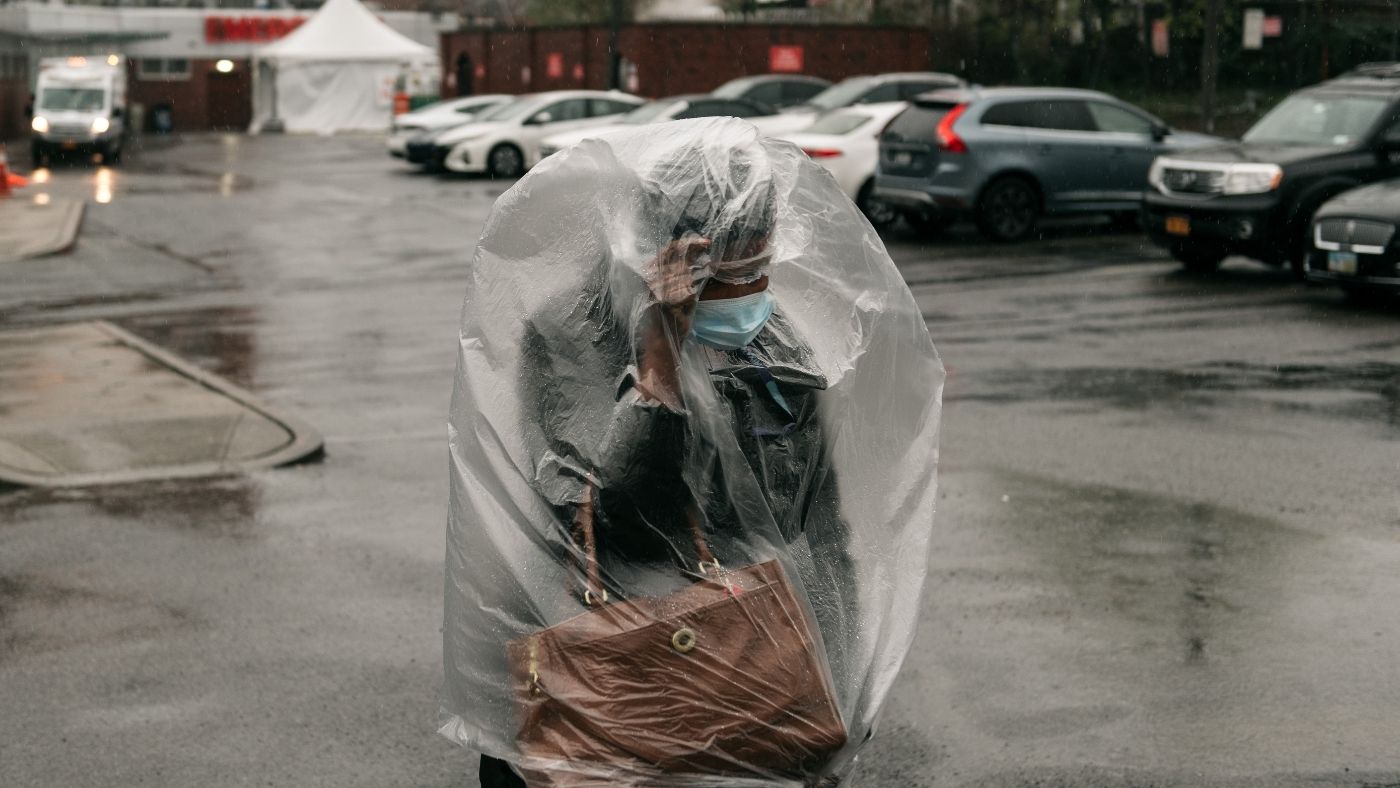
A free daily email with the biggest news stories of the day – and the best features from TheWeek.com
You are now subscribed
Your newsletter sign-up was successful
The easing of lockdown measures and rollout of vaccines is generating widespread relief but for people battling Covid-related anxiety, the health crisis is far from over.
The pandemic has “triggered a surge in health anxiety”, with increasing reports of what is commonly referred to as “coronaphobia”, The Washington Post reports.
And with feelings of isolation and insecurity increasing the emotional toll taken on young people, in particular, experts are warning that Covid anxiety may have lasting mental health effects even after everyday life resumes.
The Week
Escape your echo chamber. Get the facts behind the news, plus analysis from multiple perspectives.

Sign up for The Week's Free Newsletters
From our morning news briefing to a weekly Good News Newsletter, get the best of The Week delivered directly to your inbox.
From our morning news briefing to a weekly Good News Newsletter, get the best of The Week delivered directly to your inbox.
What is Covid Anxiety Syndrome?
Covid anxiety is typically fuelled by a fear of contracting the virus. Indeed, the threat from Covid-19 remains “very real”, and hesitancy to use public transport or visit a pub is a “typical response”, Dr Chris Hand, a lecturer in psychology at Glasgow Caledonian University, told The Times. “It’s fair to say that many of us are a wee bit more hesitant about doing certain things than we would have been before.”
That message is echoed by psychiatry professor Una McCann of Johns Hopkins School of Medicine in the US. “Anxiety is a normal, healthy reaction to dangerous things,” McCann told Health magazine.
However, ongoing uncertainty about the impact of the pandemic alongside fear of catching the virus can cause low-level feelings of anxiety to become more severe.
A free daily email with the biggest news stories of the day – and the best features from TheWeek.com
Signs that Covid anxiety have reached a concerning level may include extreme or compulsive behaviours such as agoraphobia and obsessive cleaning. An inability to complete or focus on tasks, problems sleeping and a loss of interest in connecting with friends and family can be further signs that support may be needed.
Who is at risk?
Health data from both the UK and US suggests that “those at a greater risk from the virus are more prone to Covid Anxiety Syndrome”, The Telegraph reports. But experts believes that “as many as one in five people could struggle with the return to normality, and that women under 40 may be particularly affected, since other research has shown this demographic to be worst hit by the pandemic psychologically”, the newspaper adds.
The pandemic has also “had a particularly bad impact on people with pre-existing anxiety and depression”, reports The Times. Research published in the US National Center for Biotechnology Information’s Elsevier Public Health Emergency Collection has shown that high “disgust proneness” and high stress levels may increase susceptibility to Covid anxiety too.
Lily Brown, director of the Center for the Treatment and Study of Anxiety at the University of Pennsylvania, says that along with these factors, studies also show that the chaos triggered by the pandemic is causing anxiety to soar among younger people as they try to map out a place in the world. Spending more time on social media, and consuming more media, in general, may further increase anxiety levels, she added.
Brown - whose own findings are outlined in a paper in the Translational Psychiatry journal - told Health magazine that all at-risk people “should really be on the lookout for whether they start to experience any of that functional impairment. And if they are, it may be good to reach out for additional support.”
How is it treated?
As face-to-face socialising increases and staff head back to their workplaces, many people may experience manageable levels of trepidation and concern.
The NHS recommends anyone with symptoms of Covid anxiety to “stay connected with people” and “talk about your worries”, and to “support and help others”. Other advice from the health service includes:
- prepare yourself for changes to routine and government guidelines
- look after your physical well-being, including diet and exercise
- refer to trusted information sources rather than social media, and think about limiting time spent reading and keeping up to date with coronavirus news
- manage intense feelings by focusing on aspects of daily life that are within your control
- spend time on hobbies and activities that you typically enjoy, adapting to online formats when necessary
- try to remain present rather than focusing on the future; breathing exercises can help
- get quality sleep to help both your physical and mental health.
In more severe cases, cognitive behavioural therapy may help “actively break these negative cycles of thought and action”, Dr Victoria Salem, an endocrinologist and researcher at Imperial College London, told The Telegraph.
If Covid anxiety is considered to be contributing to a Generalised Anxiety Disorder (GAD), treatment options could include medication or psychological therapies such as guided self-help or applied relaxation.
How to help
Psychology lecturer Dr Hand told The Times that “it’s important that we are all respectful of the fact that different people will take longer to adjust and that, for a number of people, it may be a very difficult transition”.
“Not everyone experienced the last 14 months or so equally, and neither will we all experience these next steps equally,” he said.
Summing up that message, the NHS urges everyone to “try to be a little more understanding of other people's concerns, worries or behaviours at this time”.
Experts agree that for people experiencing feelings of Covid-related stress and anxiety, being able to communicate openly with friends, employers and family will be of great importance in the coming months.
Julia O'Driscoll is the engagement editor. She covers UK and world news, as well as writing lifestyle and travel features. She regularly appears on “The Week Unwrapped” podcast, and hosted The Week's short-form documentary podcast, “The Overview”. Julia was previously the content and social media editor at sustainability consultancy Eco-Age, where she interviewed prominent voices in sustainable fashion and climate movements. She has a master's in liberal arts from Bristol University, and spent a year studying at Charles University in Prague.
-
 How the FCC’s ‘equal time’ rule works
How the FCC’s ‘equal time’ rule worksIn the Spotlight The law is at the heart of the Colbert-CBS conflict
-
 What is the endgame in the DHS shutdown?
What is the endgame in the DHS shutdown?Today’s Big Question Democrats want to rein in ICE’s immigration crackdown
-
 ‘Poor time management isn’t just an inconvenience’
‘Poor time management isn’t just an inconvenience’Instant Opinion Opinion, comment and editorials of the day
-
 ‘Longevity fixation syndrome’: the allure of eternal youth
‘Longevity fixation syndrome’: the allure of eternal youthIn The Spotlight Obsession with beating biological clock identified as damaging new addiction
-
 RFK Jr. sets his sights on linking antidepressants to mass violence
RFK Jr. sets his sights on linking antidepressants to mass violenceThe Explainer The health secretary’s crusade to Make America Healthy Again has vital mental health medications on the agenda
-
 The new Stratus Covid strain – and why it’s on the rise
The new Stratus Covid strain – and why it’s on the riseThe Explainer ‘No evidence’ new variant is more dangerous or that vaccines won’t work against it, say UK health experts
-
 The app tackling porn addiction
The app tackling porn addictionUnder the Radar Blending behavioural science with cutting-edge technology, Quittr is part of a growing abstinence movement among men focused on self-improvement
-
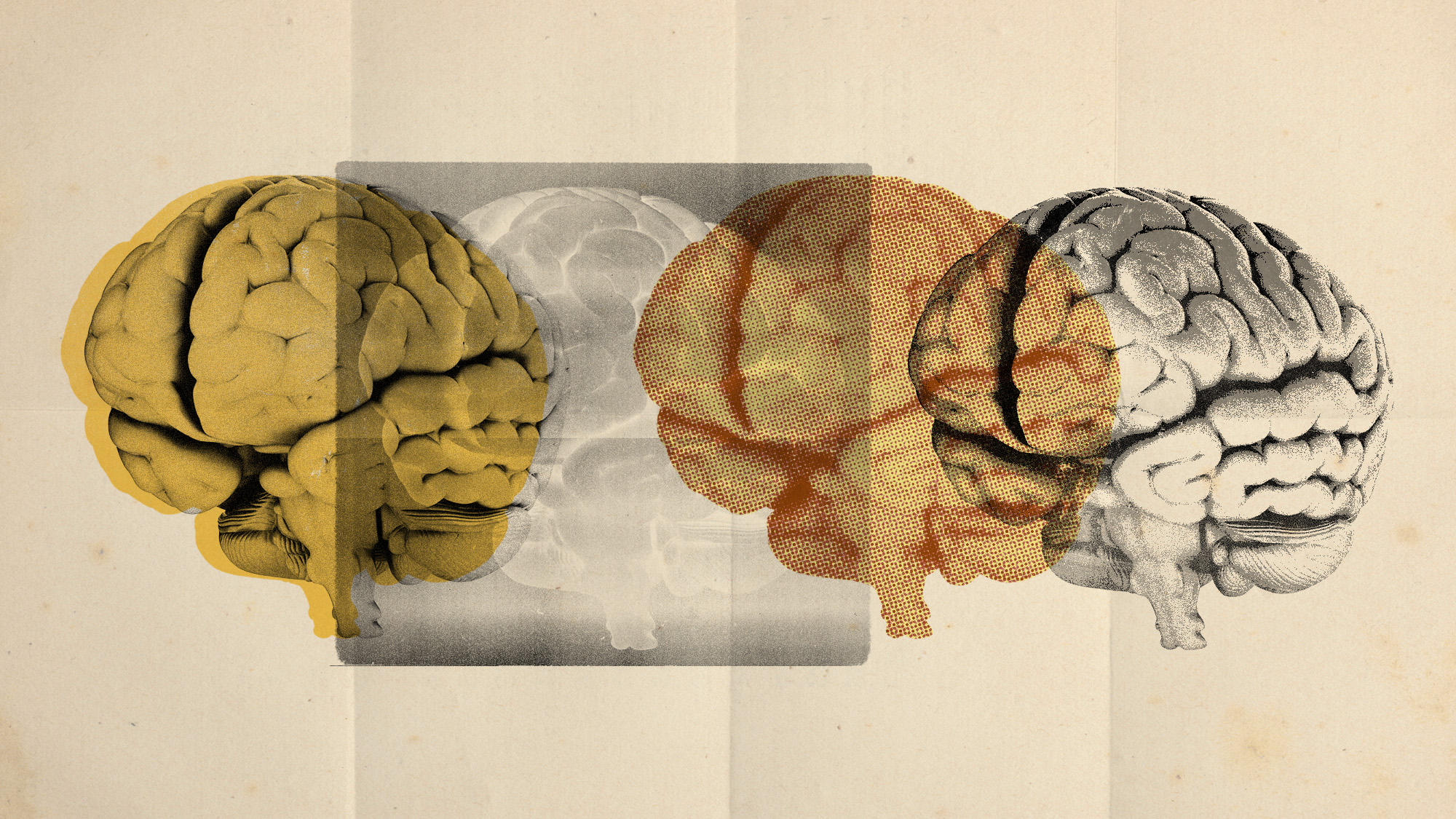 Scientists have identified 4 distinct autism subtypes
Scientists have identified 4 distinct autism subtypesUnder the radar They could lead to more accurate diagnosis and care
-
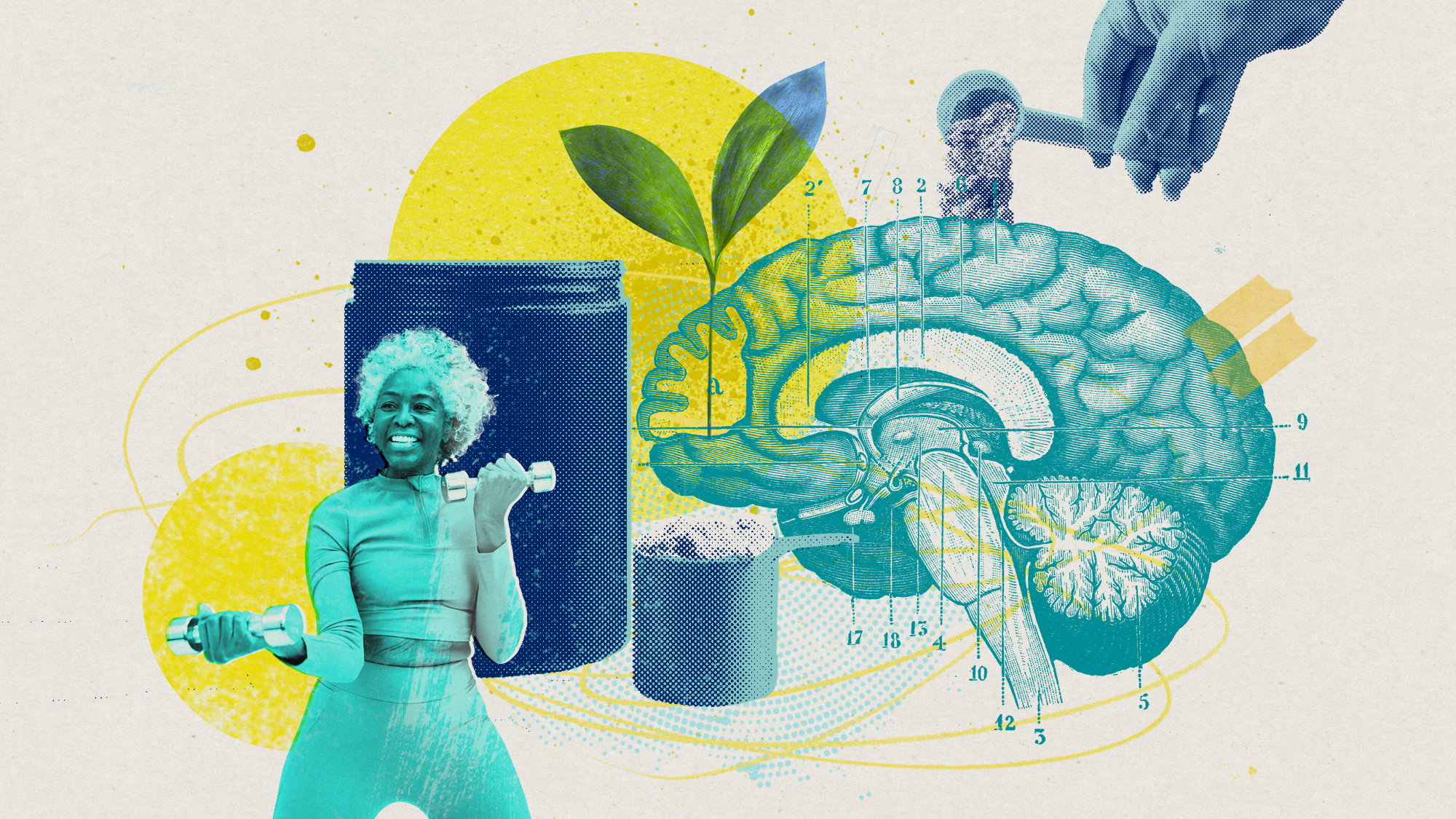 'Wonder drug': the potential health benefits of creatine
'Wonder drug': the potential health benefits of creatineThe Explainer Popular fitness supplement shows promise in easing symptoms of everything from depression to menopause and could even help prevent Alzheimer's
-
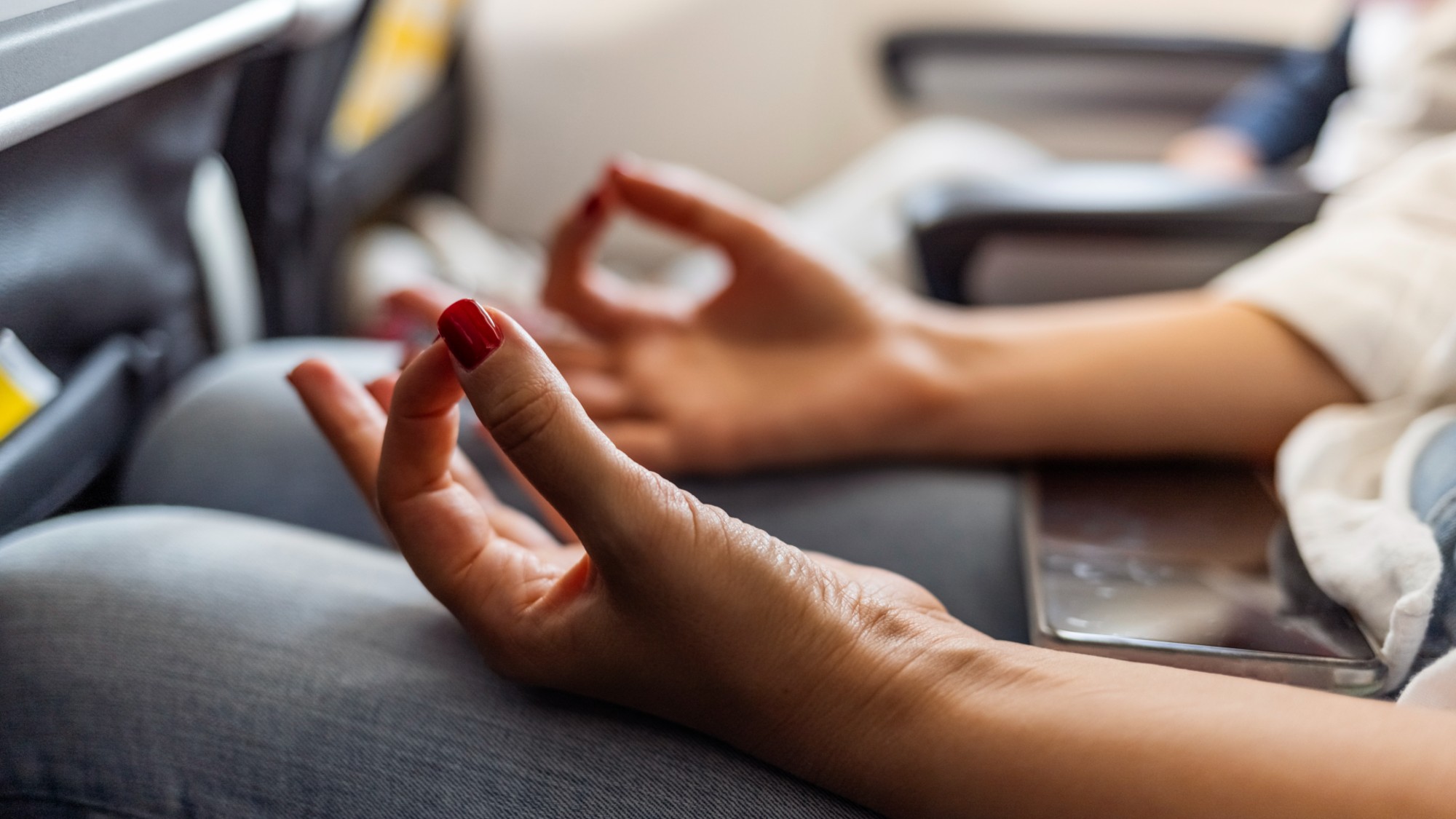 Fly like a breeze with these 5 tips to help cope with air travel anxiety
Fly like a breeze with these 5 tips to help cope with air travel anxietyThe Week Recommends You can soothe your nervousness about flying before boarding the plane
-
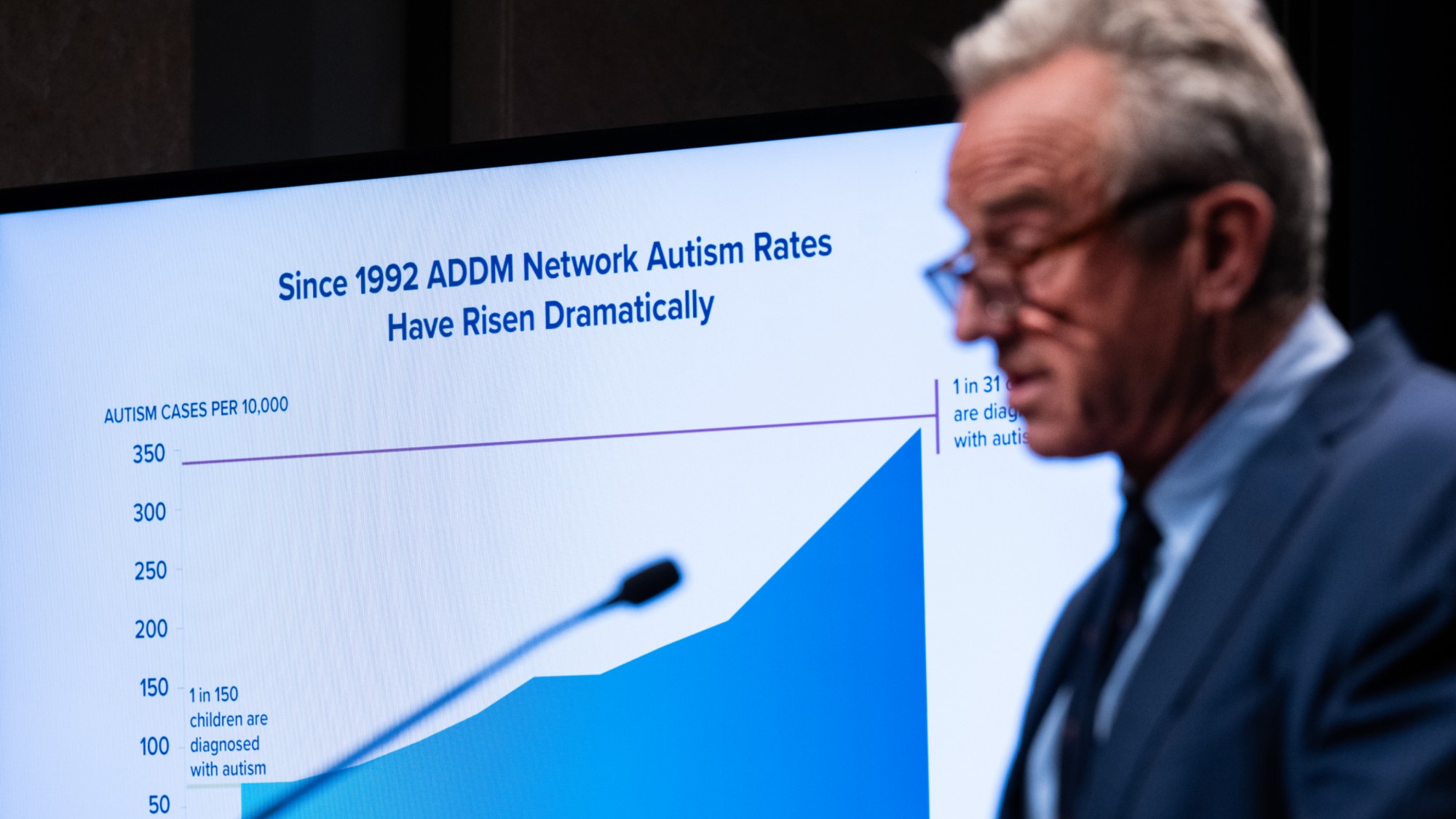 RFK Jr.'s focus on autism draws the ire of researchers
RFK Jr.'s focus on autism draws the ire of researchersIn the Spotlight Many of Kennedy's assertions have been condemned by experts and advocates